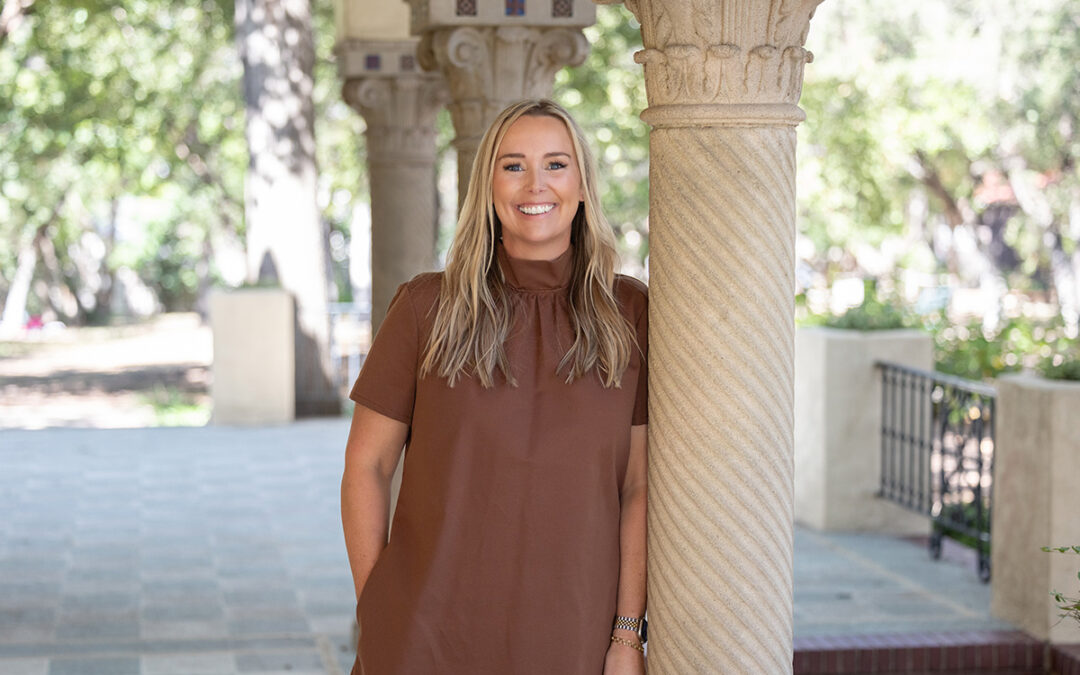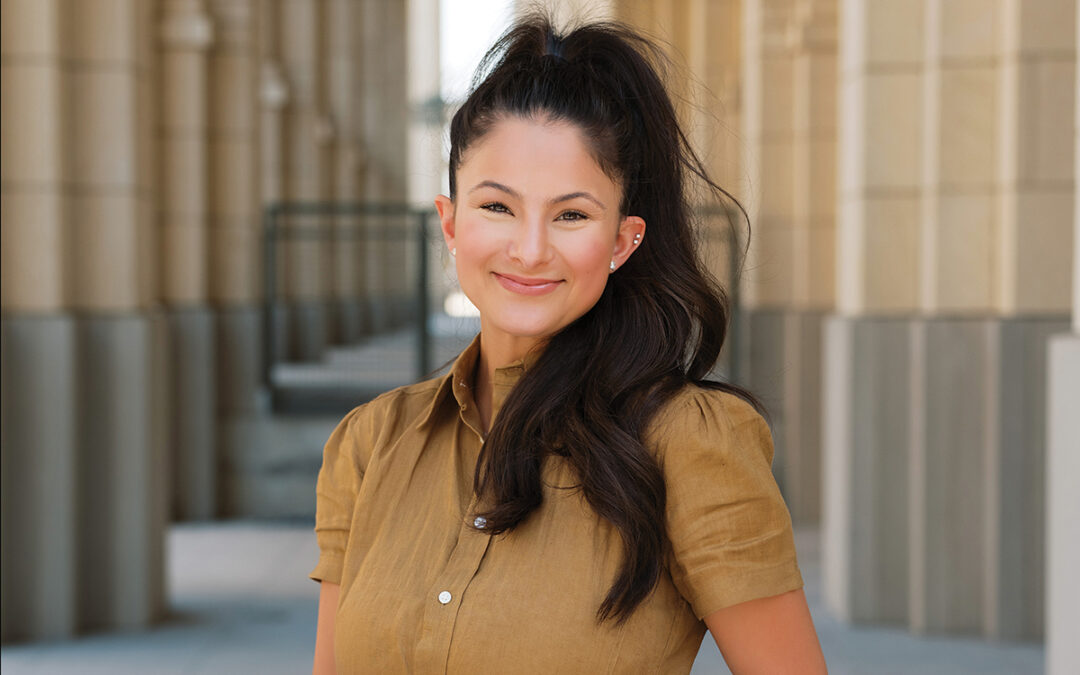Enthralled audience members often resort to other-worldly references to describe a concert by Voci di Sorelle, a 12- member all-female ensemble of vocalists who specialize in a cappella singing. Phrases like “I felt like angels were singing,” or “I felt like I wasn’t on earth anymore,” are not uncommon.
As I listened to them on a cold winter evening at St. Luke’s Episcopal Church recently, I could see why people were inclined to reach for transcendental comparisons. It was only a rehearsal for their April 13 concert, and they were just beginning to learn new material, but there was something, well, yes, rather angelic about a chorus of altos and sopranos lifting their voices harmoniously together in a musical version of a poem by Mother Teresa.
“The fruit of silence is prayer/the fruit of prayer is faith/the fruit of faith is love,” they sang into the perfect silence of the vaulted sanctuary. Perhaps the effect was magnified by the church environment, but then, Voci di Sorelle — which is Italian for Voices of Sisters — usually performs in churches and chapels.
In fact, the April concert, titled Sacred Tranquillity; Music for the Soul, will take place at University United Methodist Church on De Zavala Road. Not everything on the program is of a sacred nature, however. The ensemble’s founder and artistic director, Ruth Moreland, says that, generally speaking, only about half of what they sing is sacred music. Besides the Mother Teresa poem, the spring program will feature several other religious pieces, such as a Sanctus composed by Moreland herself; Joseph Gregorio’s Alleluia and the Russian Orthodox Cherubic Hymn in a Tchaikovsky setting. But other choices include Estonian composer Veljo Tormis’ The Songster’s Childhood, a piece inspired by Estonian folk traditions; Rebecca Clarke’s Chorus from Shelley’s Hellas, an ode to the evening star, and the characteristic Celtic mouth music also known as “lilting.” The latter originated in the poor communities of Scotland to imitate instrumental music for dancing occasions.
Except for Tchaikovsky, chances are most composers/arrangers on the program will be unknown even to dedicated art music aficionados. That’s partially because the great names from the typical classical repertoire did not compose choral music for women’s voices and partially because Moreland searches far and wide to introduce new things to San Antonio audiences.
“My commitment is to interesting programming,” says Moreland, who holds a master’s degree in choral conducting from UTSA. “I do a lot of research to find lessperformed music, especially since there isn’t that much written for women. And I also arrange for women’s voices. For the April concert, we’ll do mostly 20th-century composers, but it’s not the angular, dissonant kind of music (that many associate with the 20th century); it’s very warm and lush; a soul-satisfying music.” Which can probably be said of the group’s entire repertoire. Though more composers, including women composers, have written for women’s voices in the last 50 years than ever before, the group also performs medieval and Renaissance fare, adaptations of classical choral compositions, American spirituals and new arrangements of traditional songs of many countries.
IT WAS MAGIC FROM THE START
Voci di Sorelle has been around for more than four years, yet Moreland did not actually mean to create a new ensemble when she asked a group of singers to come to her house one day in July 2003. She was simply hoping they would be willing to perform her own new composition inspired by five poems of the 19th-century Scottish author and clergyman, George MacDonald. Having discovered the little-known MacDonald through the writings of C.S. Lewis, she had fallen in love with his work several years earlier, especially with his poetry collection Diary of an Old Soul.
“They are like modern day psalms,” she says of the poems. For quite some time after that, Moreland kept promising herself that someday she would set her favorite verses to music, but she was too busy with other things, including her duties as associate conductor of the San Antonio Choral Society. Then one day, it just happened. “One morning I was on my walk, and music just started coming to me for one of the poems,” she recalls. “I got back home and started writing it. It was finished in 24 hours. I felt like I was just a conduit for that music.”
Though she had to work more methodically on the other four, eventually Five Poems of George MacDonald
took shape as her first significant composing effort. And that’s why she summoned her singer friends to her home that fateful day 4 1/2 years ago. “They were all excellent musicians, and their voices were exactly What I wanted,” says the composer. “I put the music in front of them, and we sang for two hours straight. They had never before performed anything I had written. It was magic!”
So much so, in fact, that the group was reluctant to settle down for just that one performance. Why do only one concert? they wondered. Ideas started popping up about a Christmas program, and in December of that same year they actually presented one before an audience of 150 appreciative music connoisseurs at OLLU Sacred Heart Chapel.
One of the founding members, Tira DelaRosa, remembers how they all felt: “We realized how much fun it was to sing together and how much other music there was to perform. We saw the potential to explore different styles and time periods. The first time we actually performed together was at my wedding. It was wonderful. Then we had two concerts for the public that year even before we performed MacDonald’s poems.”
The women also realized that theirs was a unique sound, offered by no one else in town or, for that matter, in Texas. The Sisters — and they claim they felt a sisterly bond right from the start — quickly came to see themselves as the female version of the popular Chanticleer male ensemble.
Like the 12 guys of Chanticleer, they, too, would be “an orchestra of voices.” The next step was a logical one. With the help of her husband, Tony, Moreland incorporated a new nonprofit, Benissimo Music Productions, whose sole project at this moment is Voci.
Public concerts take place four times a year, though there will be only three this year because a lot of attention has to be devoted to recording sessions for their second CD. The ensemble has received considerable attention from the local classical music station, KPAC, though, oddly, it has yet to be reviewed by professional critics. That has not prevented the public from discovering them, though. Ticket sales have been good, says the founder.
IN SISTERLY UNISON
Voci di Sorelle members are all volunteers who make their living through a variety of professions. Soprano DelaRosa is a special ed teacher, for instance. Contralto Beth Hish is a policewoman, and second soprano Liliana Drake, who joined this past summer, is a stay-at-home mom right now. There are also a landscape designer, a nonprofit grant writer, another young mother and, yes, several music teachers and a music student. What unites them is their commitment to the group’s mission and their love of singing. All had to audition for their positions, and all seem in awe of what they have been able to accomplish.
“Ruth has taken 12 different voices and created one sound,” says Hish with obvious admiration. “She knows what each piece is supposed to sound like, and she knows how to get us there. It’s awesome to be part of this group.” When she joined two years ago, Hish immediately felt welcomed by the other members, and she believes that the group’s noncompetitive cohesiveness on a personal level is definitely a factor in creating the sounds that so enchant audiences.
To enhance that sense of sisterhood, Moreland organizes periodic retreats for her singers, like the one they had in January to start preparing for the spring concert. The whole group was invited to the director’s home, where they spent two days, eating, sleeping, reconnecting and rehearsing. When a member died last year, a retreat helped everyone deal with the loss. In fact, there was a great deal of change in 2007, as the ensemble had to replace four members.
To take care of such situations in the future, Moreland has initiated an apprentice program she calls the Studio of Voci di Sorelle, whose purpose is to develop young vocalists in general and potential future members in particular. Members leave, however, only when they have to, such as when they must relocate because of their job.”Across the board, all the women in this ensemble are committed. I don’t have to do a lot of cheerleading,” says Moreland.
For each concert, the Sisters aim to create a special experience, not just to present a program. “We try to create an aura,” is how the director put it. Audiences are asked not to applaud between numbers in order not to break the spell. They especially strive to achieve this mood during their Christmas events “to give people a chance to get away from the hustle and bustle and enter an oasis of peace.” The 2007 version at Mission San José, which showcased medieval and Renaissance music, was recorded and later broadcast on KPAC on Christmas Eve.
So far, Voci has released only one album, titled Enchante and featuring songs and lullabies from around the world, but the second one is on its way. Slated for release at Christmas 2008, it will be entirely dedicated to early music. The way they are going, it shouldn’t be too long before they make an appearance
on the famed Performance Today radio program, which would bring them national exposure and ultimately help them spread their vocal message to communities beyond San Antonio.
For Moreland, life could hardly be better. “To be the artistic director of Voci di Sorelle is absolutely the culmination of my musical journey,” she says emphatically. “With them, I have the perfect opportunity to accomplish what I have been put on this earth to do. When I finish a concert, I am often overwhelmed with a sense of gratitude that I got to do this.”
Voci di Sorelle’s concert Sacred Tranquillity; Music for the Soul will take place April 13 at 4 p.m. at University United Methodist Church, 5084 De Zavala Road. Tickets are $20 for adults, $12 for students; call (210) 912-9555 for reservations.
Author: Jasmina Wellinghoff
Photographer: Janet Rogers









0 Comments